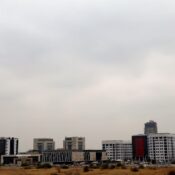
At a UN rights forum, the Taliban’s treatment of women is scrutinized
At a U.N. summit on Monday, the Taliban in Afghanistan will be scrutinized for their record on human rights; Washington claims that they routinely deny women and girls their rights.
Nevertheless, because they are not recognized by the international organization, the current leaders of the relevant nation will not be there, making this an embarrassing first for the U.N. Human Rights Council.
Instead, Afghanistan will be represented by an ambassador chosen by the outgoing Taliban-led government, which was supported by the United States, in 2021.
The United States asked how authorities would hold those responsible for violations against civilians—”particularly women and girls who are being systematically deprived of their human rights”—as part of a set of questions collected in a U.N. document prior to the review.
Along from calling for the advancement of LGBTQ rights, it also mentioned the “escalation of threats and abuse” that has occurred since the Taliban took power.
Concerns concerning the Taliban’s treatment of women were also expressed by Britain and Belgium. 76 nations have requested to speak during the summit.
According to the Taliban, their interpretation of Islamic law respects rights.
The majority of girls have been denied admission to high school and women to universities since they stormed back into power. In addition, the Taliban have restricted travel for women traveling without a male guardian, shuttered beauty parlors, prohibited women from entering parks, and prevented the majority of Afghan women from working for relief organizations.
In accordance with the U.N. system, the Human Rights Council, which meets in public in Geneva, reviews the human rights records of states and issues a set of recommendations.
Although they have no legal force, initiatives can increase policy scrutiny and reform-related pressure. The sole intergovernmental global body tasked with defending human rights around the world, the U.N. Human Rights Council, has the authority to order investigations whose findings are occasionally presented in national and international courts.
All Categories
Recent Posts
Tags
+13162306000
zoneyetu@yahoo.com



